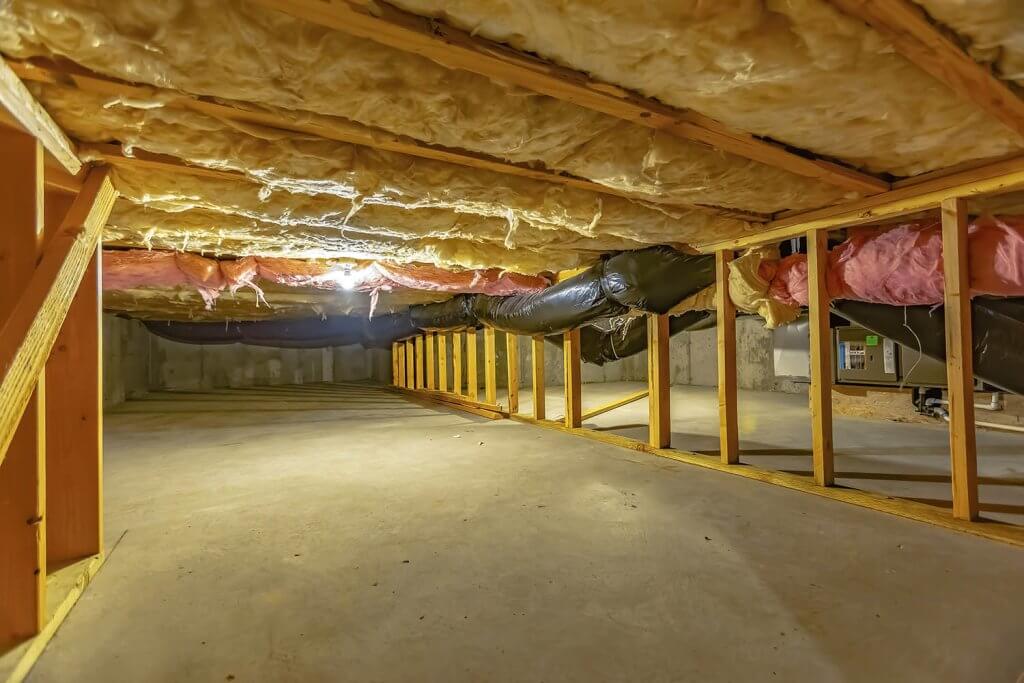Living in Middle Tennessee, where humidity levels often soar above 70% and heavy rains are a regular occurrence, your home’s crawlspace can be a hidden vulnerability. A poorly managed crawlspace can lead to moisture issues, mold growth, and structural damage—costly problems in a Nashville housing market where homes sell for around $520K in just 35-45 days (July 2025). At Magnolia Home Inspections, LLC, we’ve seen how a well-designed crawlspace setup can protect your investment and boost home value. Here’s your guide to the best crawlspace setup, focusing on vapor barriers and proper ventilation, tailored for Middle Tennessee’s humid climate.
Why Crawlspace Setup Matters in Middle Tennessee
Middle Tennessee’s high humidity, clay-heavy soils, and frequent rainfall create a perfect storm for crawlspace issues. Excess moisture can weaken foundations, attract pests, and foster mold, impacting indoor air quality and energy efficiency. In our inspections, we often find crawlspaces contributing to problems that could derail a sale or burden buyers with repairs. A proper setup with a robust vapor barrier and effective ventilation is essential to keep your home dry, safe, and appealing to buyers and realtors in neighborhoods like 12 South or Germantown.
 The Best Crawlspace Setup: Key Components
The Best Crawlspace Setup: Key Components
-
Install a High-Quality Vapor Barrier
A vapor barrier is your crawlspace’s first line of defense against moisture rising from the soil. In Middle Tennessee’s humid climate, a durable barrier is non-negotiable.
- Best Practice: Use a 10-20 mil thick polyethylene vapor barrier, sealed at all seams and edges with waterproof tape. Cover the entire crawlspace floor, extending 6-12 inches up the walls, and secure it to foundation walls with adhesive or mechanical fasteners.
- Why It Works: Blocks ground moisture, reducing humidity levels (aim for below 60% to prevent mold). A study by the EPA notes that vapor barriers can reduce crawlspace humidity by up to 50%.
- Local Tip: In Nashville’s clay soils, which retain water, opt for a 20-mil barrier for extra durability. Ensure no gaps or tears, as even small breaches can allow moisture intrusion.
- Cost: $1,500-$3,000 for professional installation; DIY costs ~$0.50-$1 per square foot for materials.
- Learn More: Energy Star: Crawlspace Moisture Control
-
Ensure Proper Ventilation
Ventilation prevents trapped moisture and maintains air quality, but Middle Tennessee’s humidity requires a strategic approach. Traditional vented crawlspaces can pull in humid air, so a conditioned or sealed crawlspace is often better.
- Best Practice: Opt for a sealed crawlspace with no exterior vents, paired with a dehumidifier to maintain humidity below 60%. Seal foundation vents with foam board or insulated covers. Alternatively, for vented crawlspaces, install vents at a ratio of 1 square foot per 150 square feet of crawlspace floor (per IRC 2021), ensuring vents are evenly spaced and unobstructed.
- Why It Works: Sealed crawlspaces reduce humid air infiltration, while dehumidifiers actively control moisture. Vented systems work if humidity is managed, but require regular monitoring in Tennessee’s climate.
- Local Tip: In Middle Tennessee, sealed crawlspaces with dehumidifiers (cost: $800-$2,000) are increasingly popular in new homes for energy efficiency and mold prevention.
- Learn More: This Old House: How to Insulate and Ventilate a Crawlspace
-
Add Insulation for Energy Efficiency

Insulating crawlspace walls (in sealed systems) or floor joists (in vented systems) enhances energy efficiency and protects pipes from freezing during occasional Tennessee cold snaps.
- Best Practice: Use rigid foam board insulation (R-value 5-10) on foundation walls for sealed crawlspaces, or fiberglass batts (R-19) between floor joists for vented ones. Seal all gaps with spray foam.
- Why It Works: Reduces heat loss, lowering energy bills (critical with Nashville’s rising costs) and prevents moisture-related damage to wood structures.
- Cost: $1,000-$2,500 for professional insulation; DIY ~$500-$1,000.
- Learn More: Bob Vila: Crawlspace Insulation Guide
-
Install a Dehumidifier or Sump Pump
In Middle Tennessee’s humid environment, a dehumidifier or sump pump is often essential to control moisture levels.
- Best Practice: Install a crawlspace-specific dehumidifier (30-70 pints/day capacity, depending on size) with a built-in pump for drainage. For areas prone to standing water, add a sump pump with a battery backup.
- Why It Works: Dehumidifiers keep humidity below mold-friendly levels (60%), while sump pumps remove standing water, preventing foundation damage.
- Local Tip: Check for local rebates (e.g., through TVA) for energy-efficient dehumidifiers, common in Nashville.
- Cost: Dehumidifier: $800-$2,000; Sump pump: $1,000-$3,000.
- Learn More: Family Handyman: Crawlspace Waterproofing
-
Regular Maintenance and Monitoring
A great setup requires upkeep to stay effective. Schedule annual inspections to check for barrier tears, vent blockages, or dehumidifier performance.
- Best Practice: Use a hygrometer to monitor humidity (aim for 40-60%). Inspect for pests, mold, or standing water. Clean or replace dehumidifier filters every 6 months.
- Magnolia’s Role: Our inspections, including IR scans, detect moisture or insulation issues early, providing photo-filled reports within 24 hours to guide maintenance.
Benefits for Nashville Homeowners and Realtors
- Protect Your Investment: A dry, stable crawlspace prevents foundation cracks or mold, saving $5,000-$20,000 in repairs.
- Boost Home Value: In Nashville’s competitive market, a well-maintained crawlspace is a selling point, appealing to buyers and realtors.
- Energy Savings: Sealed crawlspaces with insulation can cut energy bills by 10-20%, per Energy Star.
- Peace of Mind: Our 45-minute post-inspection consultations explain findings, empowering buyers and realtors to address issues confidently.
Limitations to Consider
- Cost: Professional setups (vapor barriers, dehumidifiers, insulation) can range from $3,000-$8,000, though DIY options are cheaper.
- Climate Challenges: Middle Tennessee’s humidity requires ongoing monitoring, as even sealed crawlspaces can develop issues without maintenance.
- Professional Needs: Complex installations (e.g., sump pumps) require licensed contractors, which we note in our reports.
Trust Magnolia for Your Crawlspace Inspection
At Magnolia Home Inspections, LLC, we’re your “brother or uncle with a construction background,” using our 40+ years of expertise to spot crawlspace issues early. Our IR scans and detailed reports help buyers in Green Hills or The Gulch make informed decisions, while realtors benefit from clear findings to keep deals on track. Ready for a comprehensive inspection? Contact us at (615) 701-6991 or visit www.TrustMagnolia.com. Realtors, join our CE courses or Lunch and Learns to learn how we support your clients.


